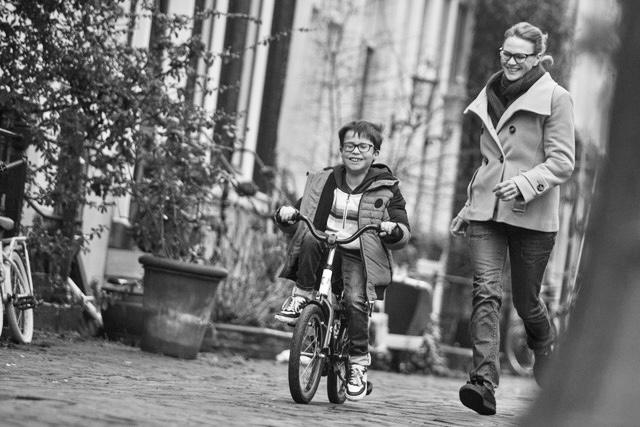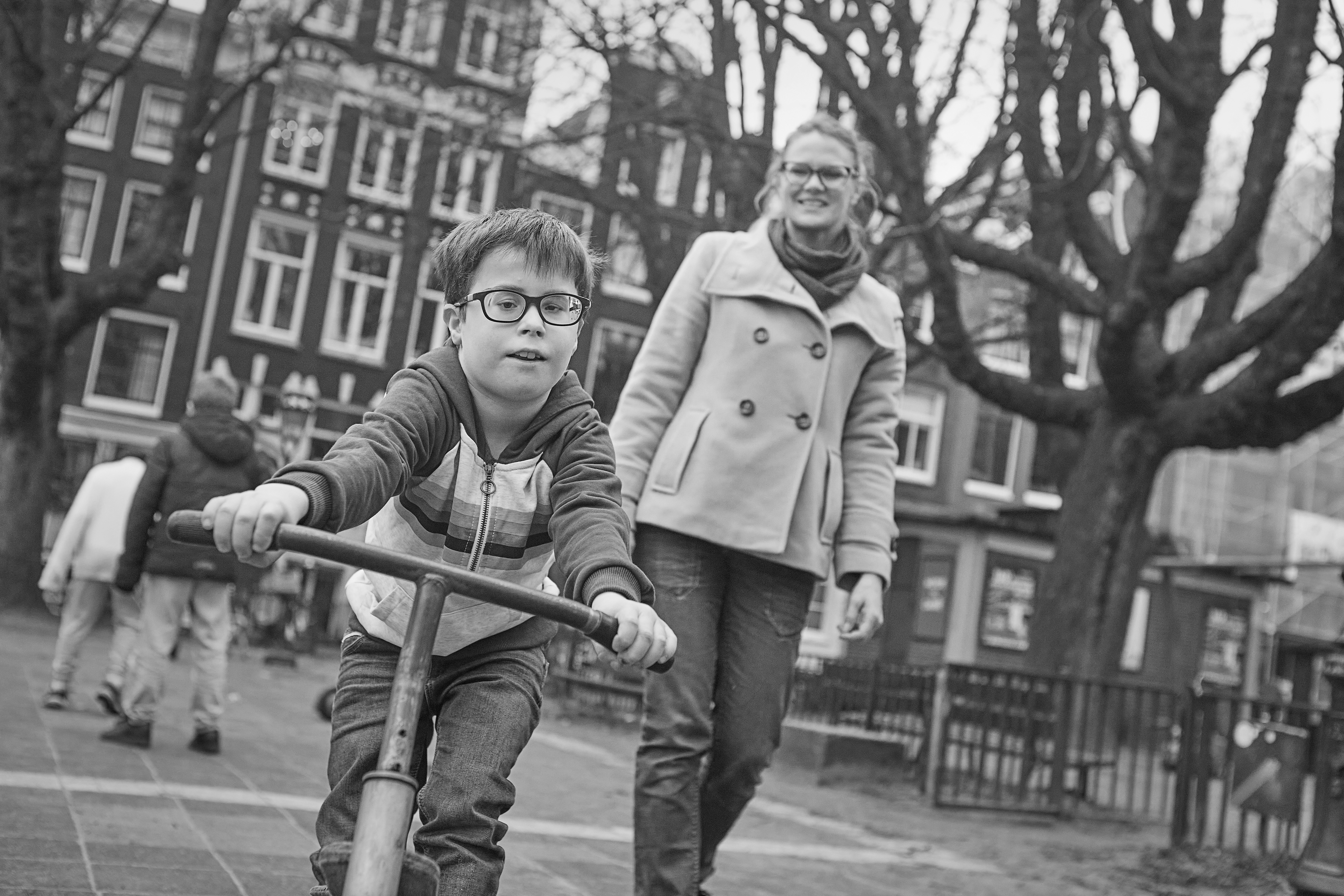Case Story: Arthur


‘I just want him to be seen and loved for who and what he is. It’s a very basic need.’
Imagine giving birth to a seemingly ‘normal’, healthy child only 4 weeks later to discover that he is completely blind in one eye. Further testing shows that you have a child with a very rare genetic syndrome with no other known cases in the world. And the 5-month old baby that you have will most likely be severely disabled. The shock, the pain, the grief and finally comes the acceptance and perspective.
Maaike, the mother of Arthur who is now 8 years old, opens up about her life and experience in raising a different and extraordinary child and her journey from diagnosis to acceptance.
‘I use to pity parents with a special needs child. I would feel sorry for them, so I feared that other people would now feel sorry for me too. But that fear is gone. Because I am an amazing mom. It is a training that not a lot of parents get; with a special needs child come a special skills parent.’
However, there were many tears, sleepless nights, emergency room visits and heated discussions with doctors before such a perspective was gained, she recounts.
Arthur was born on 29 October, 2016 after a normal pregnancy and delivery. Although he cried a lot, their first and main concern, initially, was one eye where his pupil appeared grey instead of black. After a visit to the eye doctor, at only 4 weeks old they were informed that Arthur was permanently blind in his left eye.
Little did they know then, this was only the beginning of their journey in discovering more about Arthur’s health. ‘I wasn’t too bothered about the eye. So what if he won’t be able to work on a control tower to land planes?’
Further testing revealed Arthur had a very rare deletion on his 11th chromosome, which would impact him physically, as well as neurologically. It turned out he was the only known case in the world.
‘At first I had a child that was blind in one eye, now I would have a severely handicapped child in the future. He was just a baby, I thought they must be wrong…’
From the age of 1 Arthur had a lot of difficulties with viruses affecting his airways and was never completely fit. There were regular hospitalisations with pneumonia and upper airway infections. In tears Maaike recounts all the harrowing visits to the hospital over the years.
‘He was always fighting for his breath’, she remembers. ‘whenever he caught a cold, I think half of the time we went to the hospital or emergency room because he wasn’t getting enough oxygen.’
She now also knows that children with genetic conditions often have poor muscle tone, like Arthur and that this is often associated with various breathing problems. None of which was ever communicated to them by a healthcare professional.
What comes out very strongly in Maaike’s experience is the lack of information and support from healthcare providers along their journey. From the way in which the initial diagnosis was delivered, to the physical treatment of her vulnerable son during testing, to the lack of mental health support for her and Arthur’s father.
‘I was crazy at one point – beyond burnout’, she admits. ‘The lack of sleep, the constant alertness, hospital visits, our marriage fell apart, and I was taking care of Arthur most of the time on my own- It was just too much.’
‘Right after the diagnosis I went out and found a good physical therapist that started seeing Arthur regularly for years. She was a huge support. She asked me how we were doing, wanted to see the bigger picture. She told me to look at Arthur, not his diagnosis. Sometimes I would even come without Arthur and she would just listen to me. I wasn’t there for me, but she was.’
Now, looking back, Maaike realises that this therapist was one of the exceptions she met along the way.
It’s clear through our conversation that Arthur was never the problem, but that he certainly makes problems in the healthcare industry very visible, as well as the struggles parents have on a personal level.
‘It’s exhausting and life-changing. Since we don’t have a prognosis, we don’t know what to expect. Arthur constantly needs a lot of guidance, attention and care. Sometimes I don’t know where to pull it from. Most people, including a lot of health care professionals, don’t have a clue what it is like to adjust to your kids needs in such an extraordinary way.’
Yet even through her traumatising experience, 8 years later she finds meaning and gratitude for what Arthur’s life has brought her and is proud of the mother and woman she has become through him.
‘Arthur taught me to slow down, to appreciate every little thing. To take care of myself in order to be able to take care of him.’
‘I am so proud that Arthur can now pee on the toilet at 8 years old. This is a huge thing because it expands our world.’
Reaching small, but monumental milestones makes a parent like Maaike think about her child’s life in the future and what that might look like. What is striking and maybe incomprehensible to many parents is how very simple that is.
‘I don’t care if he doesn’t have a ‘real job’. I just want him to be seen and loved for who and what he is. It’s a very basic need. This is where it all started and it’s still all I really want for my son.’
When asked if she has an interest in finding other people, now many years on, with the same genetic condition and what the name is, she gives an emphatic, ‘no’.
‘This condition has a name. Its’ name is Arthur.’
